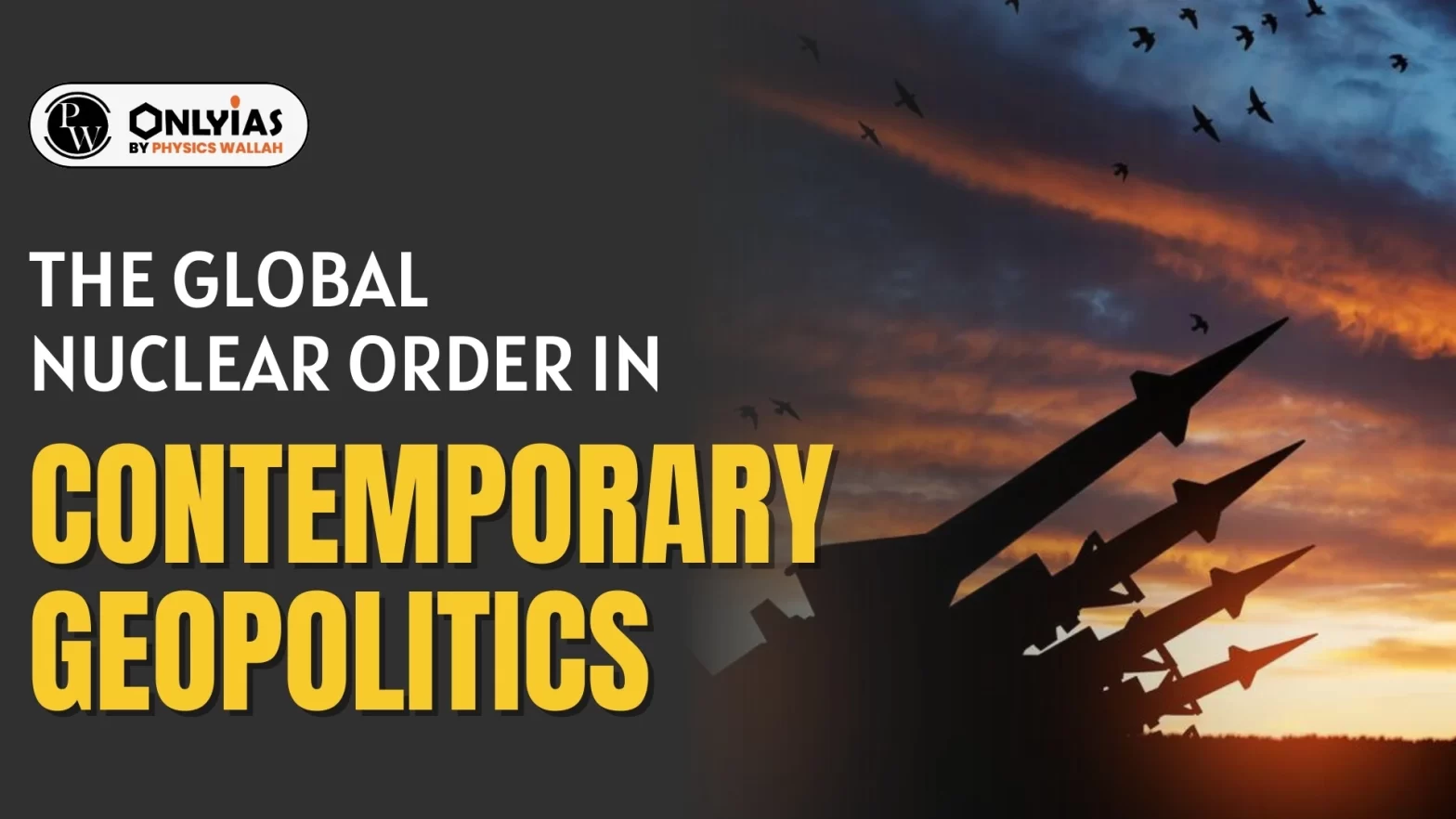Context: This editorial is based on the news “The global nuclear order is under strain” which was published in the Hindu. This article highlights that the global nuclear order (GNO), which was established during the Cold War, is facing challenges in the current geopolitical scenario.
About Global Nuclear Order (GNO)
- After Cuban Crisis: The Global Nuclear Order (GNO) was created after the 1962 Cuban Missile Crisis, the U.S. and the U.S.S.R. took a lead in this direction.
- Establishment of Hotline: It led to the establishment of the hotline in 1963 (a bilateral measure), to enable the leaders to communicate directly. The hotline (later upgraded into nuclear risk reduction centers) was followed by arms control negotiations.
- To Control Proliferation: In 1965, the U.S. and the U.S.S.R. initiated multilateral negotiations in Geneva on a treaty to curb the spread of nuclear weapons.
- Nuclear Non-Proliferation Treaty (NPT): In 1968, the Nuclear Non-Proliferation Treaty (NPT) opened for signature. However, India had chosen not to sign the NPT, and in 1974, conducted an underground peaceful nuclear explosive, or PNE.
- The Nuclear Suppliers Group (NSG): It was founded in response to the Indian nuclear test in May 1974 and first met in November 1975. It observes common guidelines for exporting nuclear and related dual-use materials, equipment, and technologies.
- The London Club later transformed into the NSG, consisting of 48 countries today.
Significance of the Global Nuclear Order (GNO)
- Control Nuclear Weapons & its Proliferation: The taboo against nuclear weapons has been held since 1945. It helped to survive 75 years of the nuclear age without blowing itself up.
- Maintenance of Stability: Arms control negotiations led to parity in strategic capacities creating a sense of arms race stability, and provided crisis management stability.
Changing Geopolitics From Bipolarity to Multipolarity: A New Era in Nuclear Politics
- Shift from Bipolarity to Multipolarity: The rise of China has introduced a new dimension to nuclear relations of the World.
- Changes in the U.S.-Russia Treaties: In 2002, the U.S. withdrew from the Anti-Ballistic Missile (ABM) Treaty and in 2019, from the Intermediate-Range Nuclear Forces (INF) Treaty and the only remaining agreement, New START Treaty is also facing uncertainty.
- New Nuclear Peer Rivals: The U.S. is facing two nuclear peer rivals (Russia and China). Also, the episode of the Ukraine war adds more uncertainty.
- Shifts in Technology: The 75-year-old nuclear technology on non-proliferation is undergoing shifts.
- The U.S. showed biasness for Israel, when it went nuclear in the 1960s-70s and again, when China helped Pakistan with its nuclear programme in the 1980s.
- Recently, the nuclear submarine AUKUS deal (Australia, U.S., U.K.) with Australia, a non-nuclear weapon state, is raising concerns in the NPT community.
- Changing Perspective:
- South Korea: During the 1970s, South Korea began to actively consider a nuclear weapons programme, provoked by the U.S. withdrawal from Vietnam. However, later South Korea was persuaded to join the NPT.
- But recent opinion polls indicate 70% support for developing a national nuclear deterrent.
- Japan: As a nuclear victim, Japan retains a strong anti-nuclear sentiment but there is a shift too, visible in Japan’s decision to double its defence spending over next five years.
Also Read: Nuclear Power Plants In India
Conclusion:
To gain legitimacy, any global nuclear order needs to fulfill two conditions- a convergence among the major powers and successfully presenting the outcome as a global public good to the rest of the world.
| Prelims Question (2015)
Consider the following countries:
1. China
2. France
3. India
4. Israel
5. Pakistan
Which among the above are Nuclear Weapons States as recognized by the Treaty on the Non-Proliferation of Nuclear Weapons, commonly known as Nuclear Non-Proliferation Treaty (NPT)?
(a) 1 and 2 only
(b) 1, 3, 4 and 5 only
(c) 2, 4 and 5 only
(d) 1, 2, 3, 4 and 5
Ans: (a) |
![]() 3 Jan 2024
3 Jan 2024
